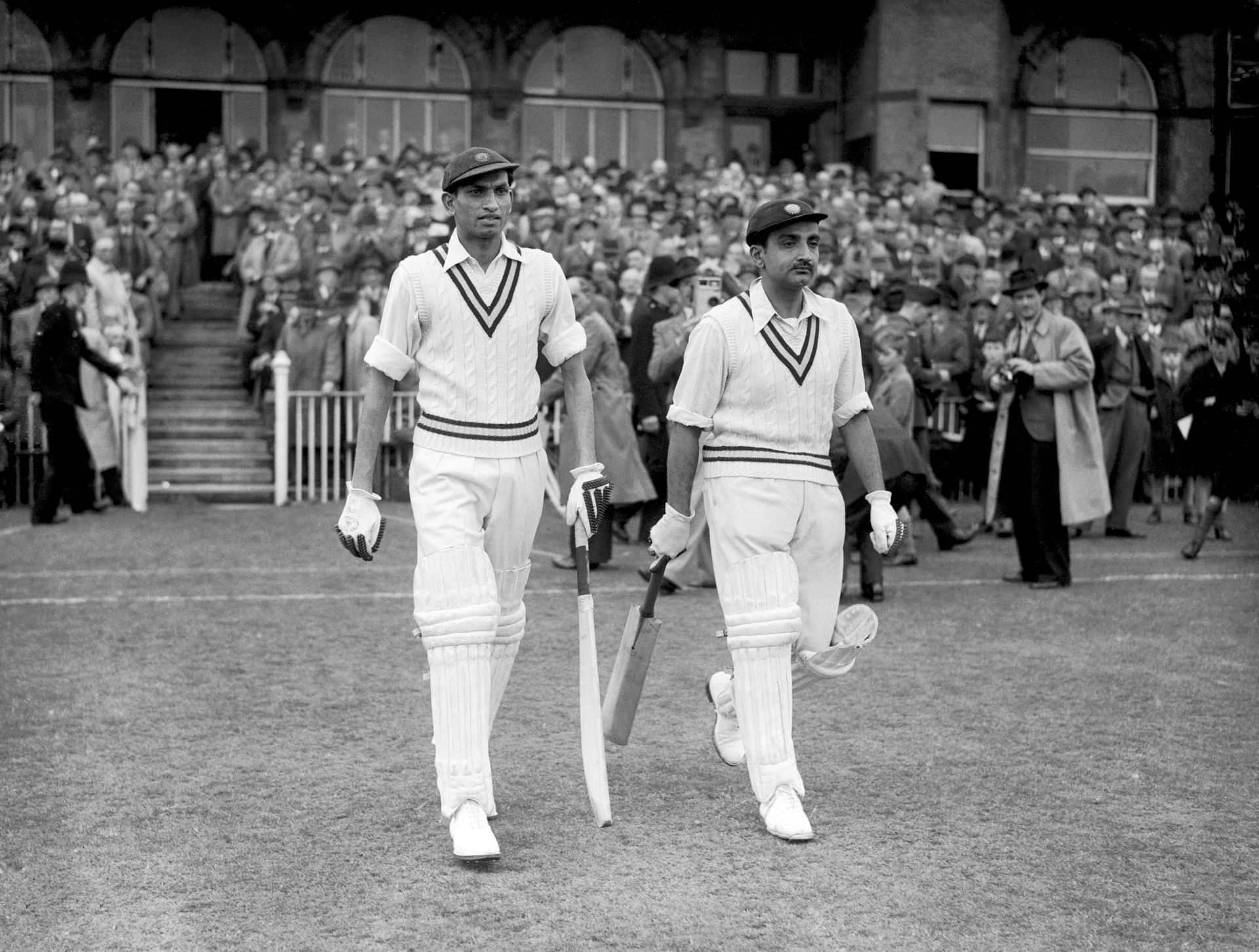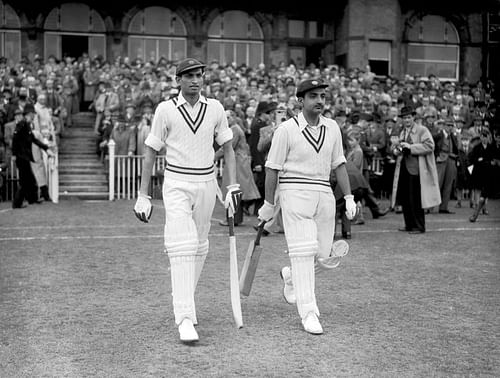
Vijay Merchant: The fountainhead of the Bombay tradition of great batters

While Sir Don Bradman and George Headley emerged from opposite sides of the globe, in another part of the earth, Vijay Merchant was perfecting his technique so assiduously that he came to be looked upon as the fountainhead of the Bombay tradition of great batters adorned by the likes of Sunil Gavaskar and Sachin Tendulkar.
So wedded was Merchant to his art that he deferred matrimony - which he coupled with philanthropy - for the days when he had finally locked away his wide willow.
Reminiscent of the Ponsford-Bradman big-score one-upmanship in the Sheffield Shield in the days of yore was the rivalry between the two Vijays, the Merchant-Hazare tussle in Indian domestic cricket during the Second World War.
If Hazare had scored 316 for Maharashtra against Baroda in the Ranji Trophy in 1939-40 and 309 (amazingly out of a total of 387 all out) for the Rest of India against the Hindus in the Bombay Pentangular in 1943-44, Merchant compiled 359 not out for Bombay in the same Ranji Trophy season in the home game against Maharashtra.
This was the highest score in Indian domestic cricket until B.B. Nimbalkar scored the only quadruple hundred in the country in 1948-49.
With Nimbalkar anchored on 443, against Kathiawar in Poona and just 10 runs away from breaking Bradman’s record, the opposing team did not turn up after Lunch that day, thereby conceding the match. The story, perhaps apocryphal, goes that they had so much respect for "The Don" that they could not reconcile to the idea of anyone, even their own countryman, surpassing him.
Merchant’s brilliant showing in the 1936 and 1946 tours of England
Be that as it may, in 1946-47 Hazare put up the highest-ever partnership for any wicket in all first-class cricket - 577 with Gul Mohammad for the fourth wicket for Baroda versus Holkar. This mark stood for nearly 60 years until Kumar Sangakkara and Mahela Jayawardene put on 624 for the third wicket for Sri Lanka against South Africa at Colombo in 2006.
Not all of Merchant’s runs were scored in familiar territory. He was third in the all-comers averages during the English summer of 1936. A decade later, he was second behind the great Wally Hammond. On display during that wet season was his mastery on damp surfaces.
One feature of Merchant’s batting was his penchant for the late cut, an indication of a delicate touch that was quite unique. Significantly, Merchant is second behind Bradman in all-time first-class career averages, his 13,470 runs having come at 71.64 per innings. Headley’s first-class average was 69.86, having scored 9,921 runs. Overseas, Merchant averaged 62, Headley 60.
Merchant would have finally come up against Bradman, having been appointed captain for the 1947-48 tour, but had to withdraw on grounds of health. During that series, Hazare became the first Indian to score a century in each innings of a Test. Injury curtailed Merchant’s career, and with the war having intervened, he had but a short stint in Test cricket. In 10 Tests, Merchant scored 859 runs at an average of 47.72 with three hundreds to his name.
(Excerpt from Indra Vikram Singh’s book ‘Don’s Century’).